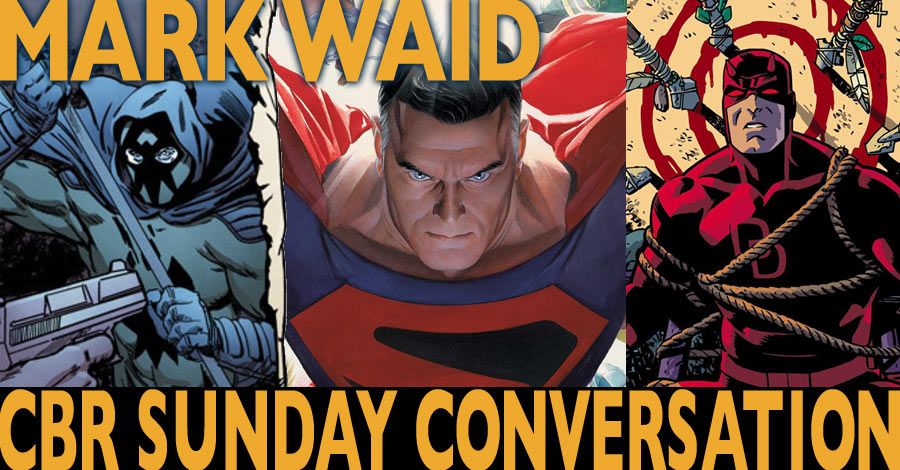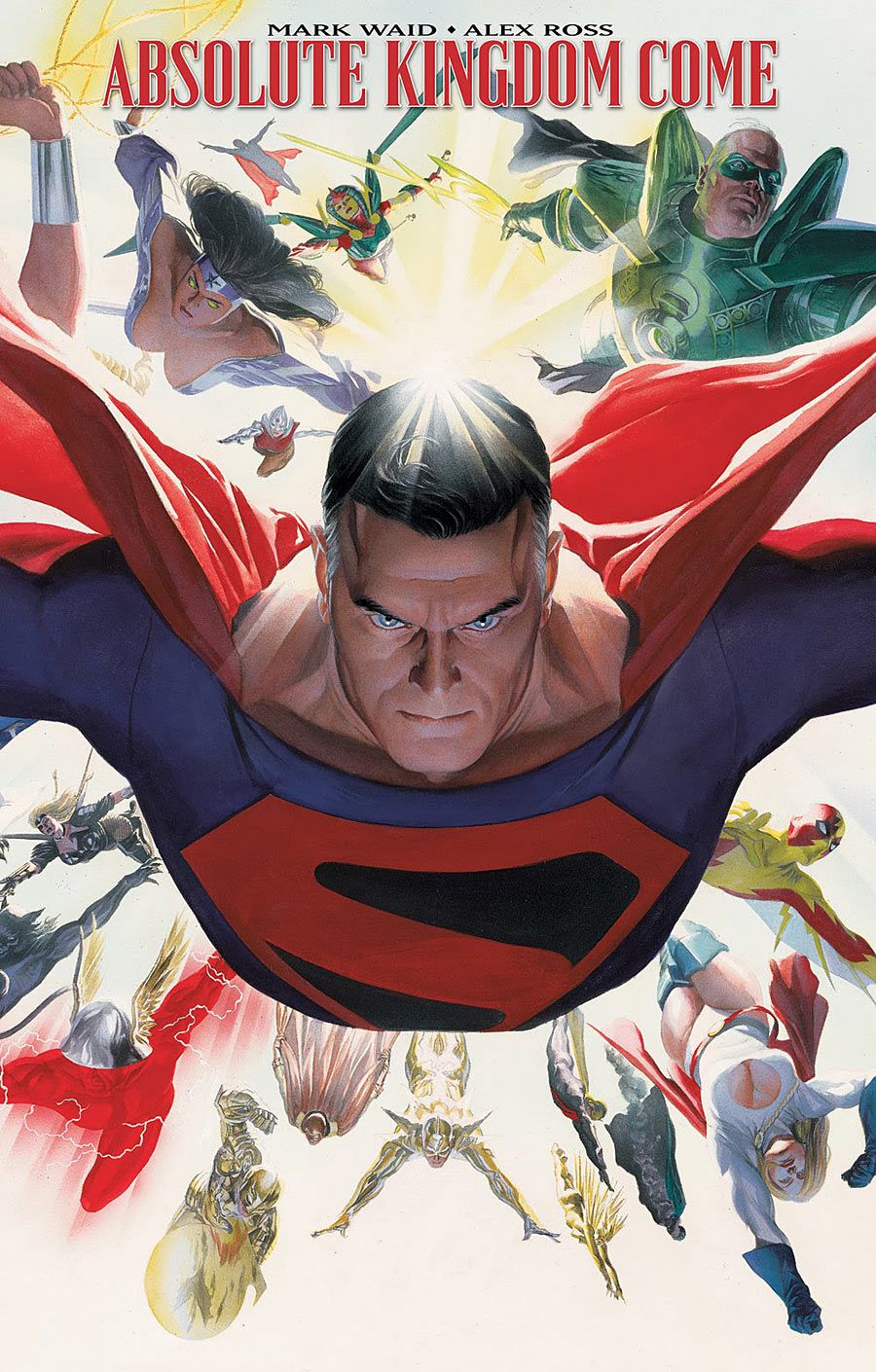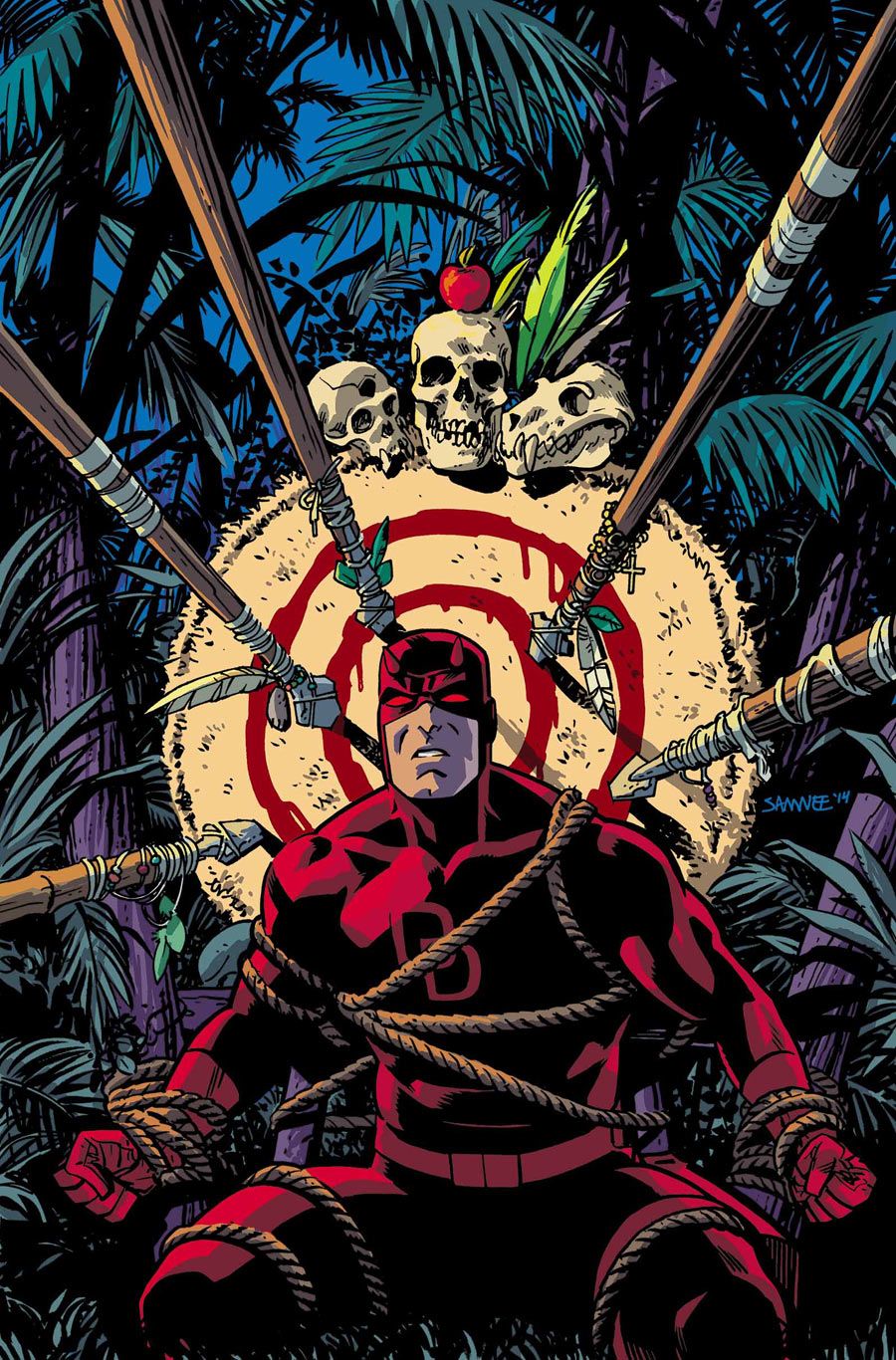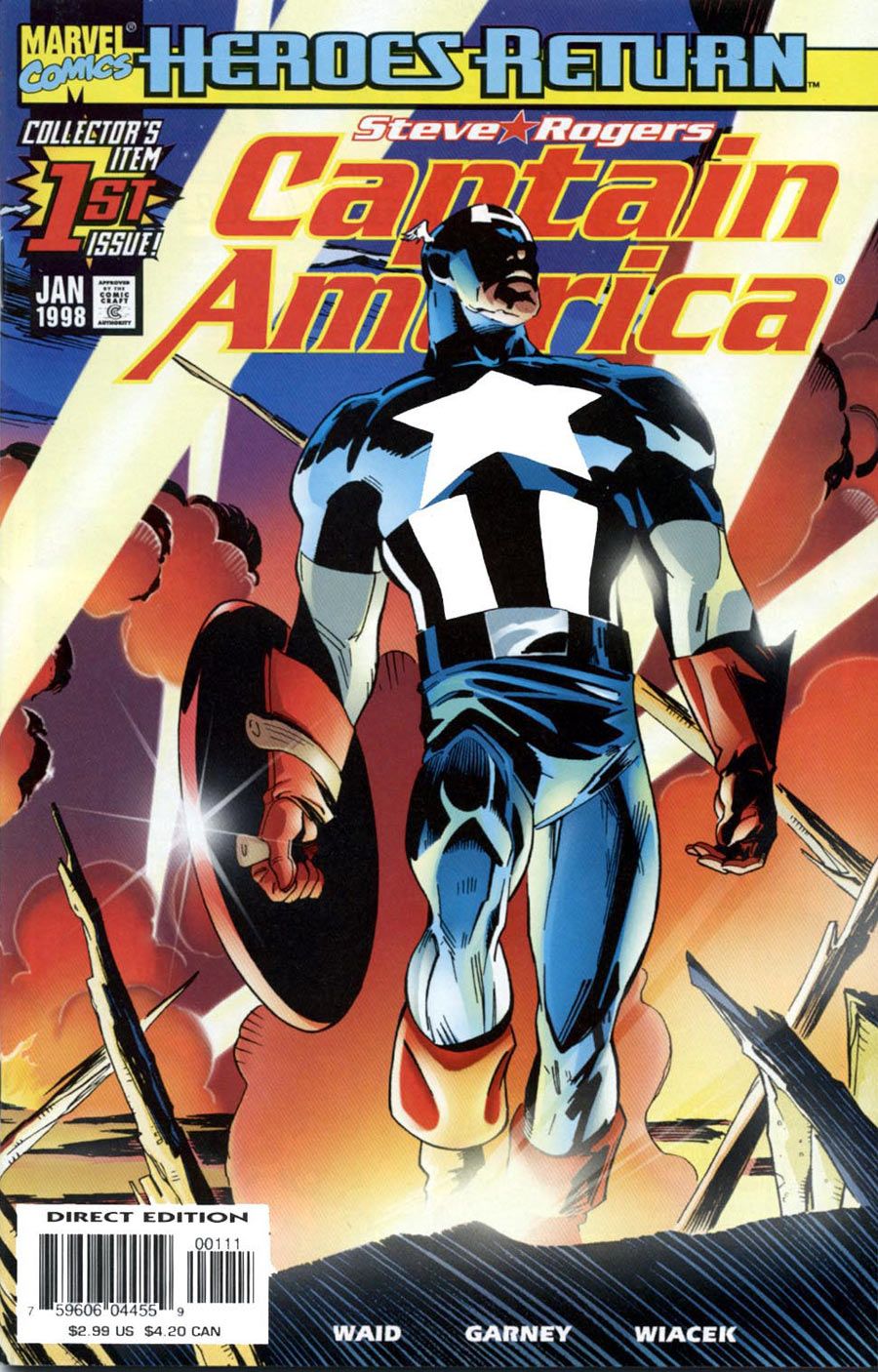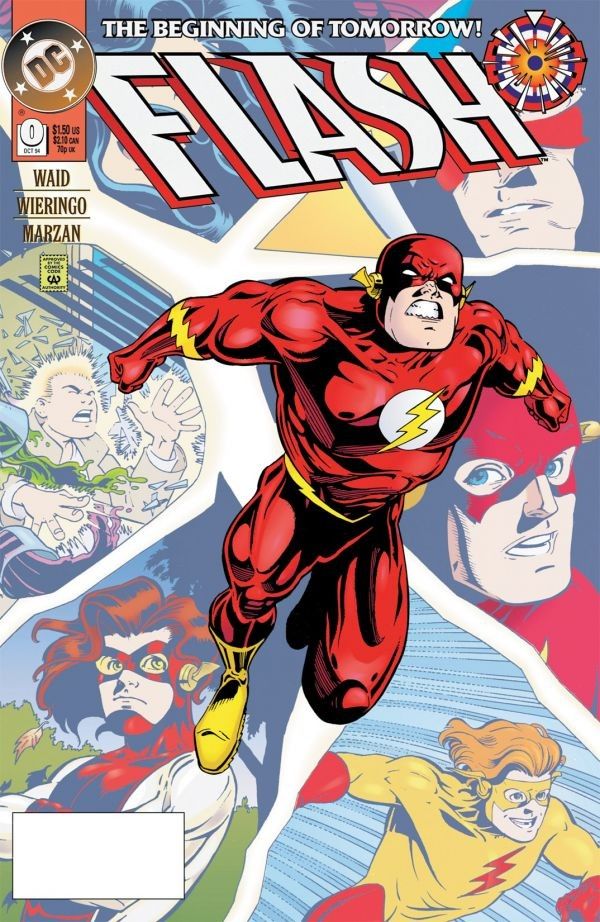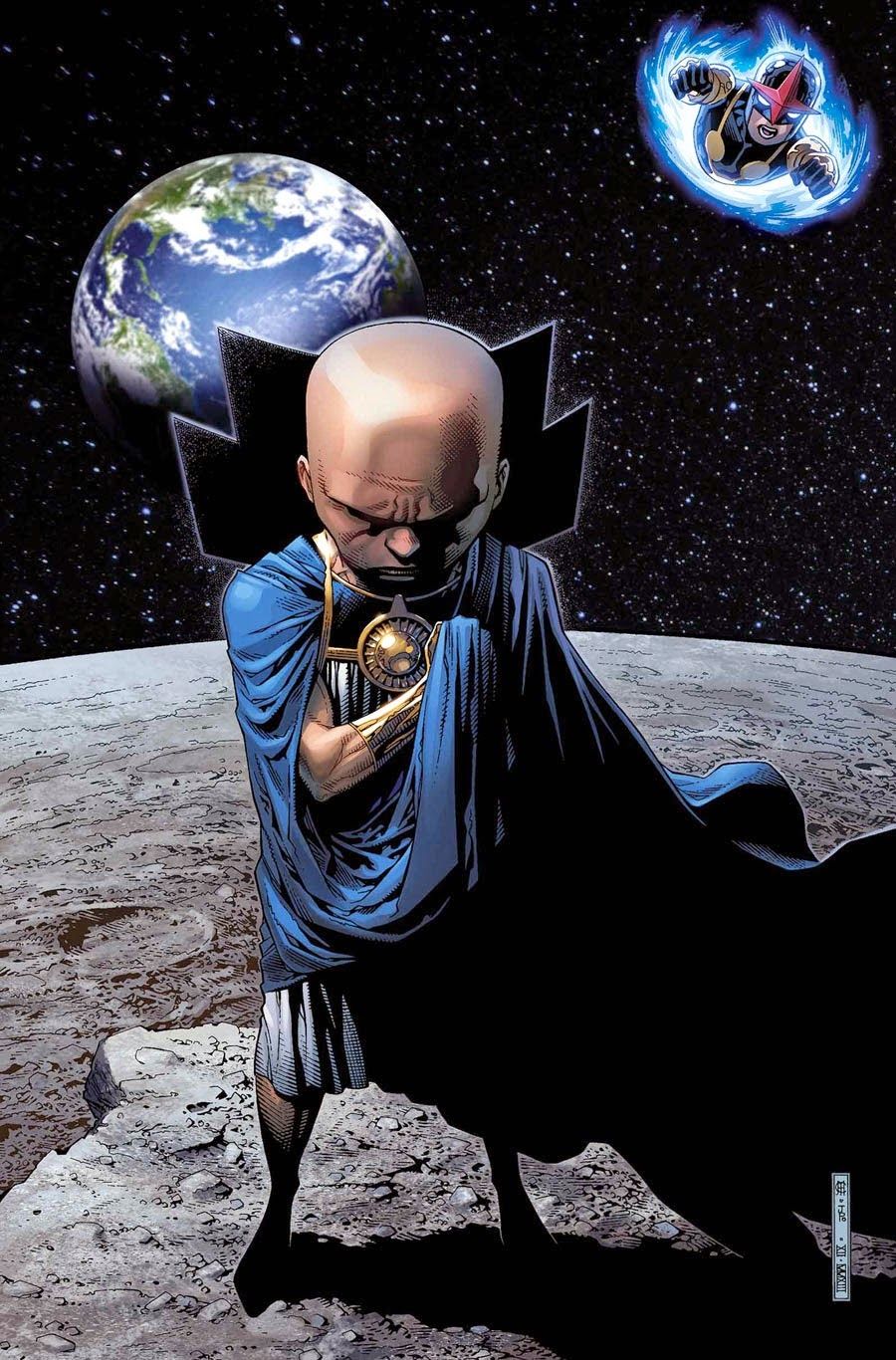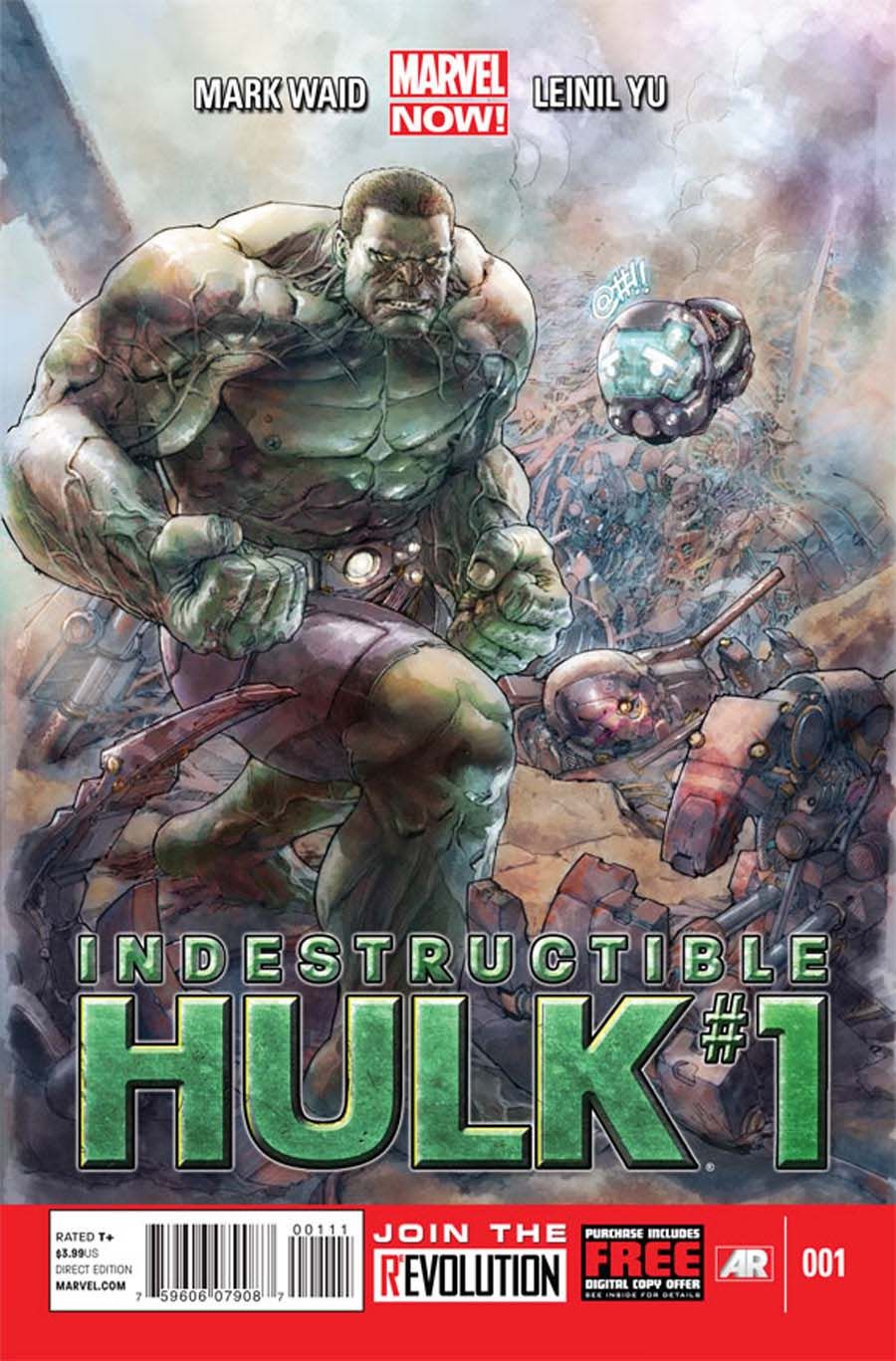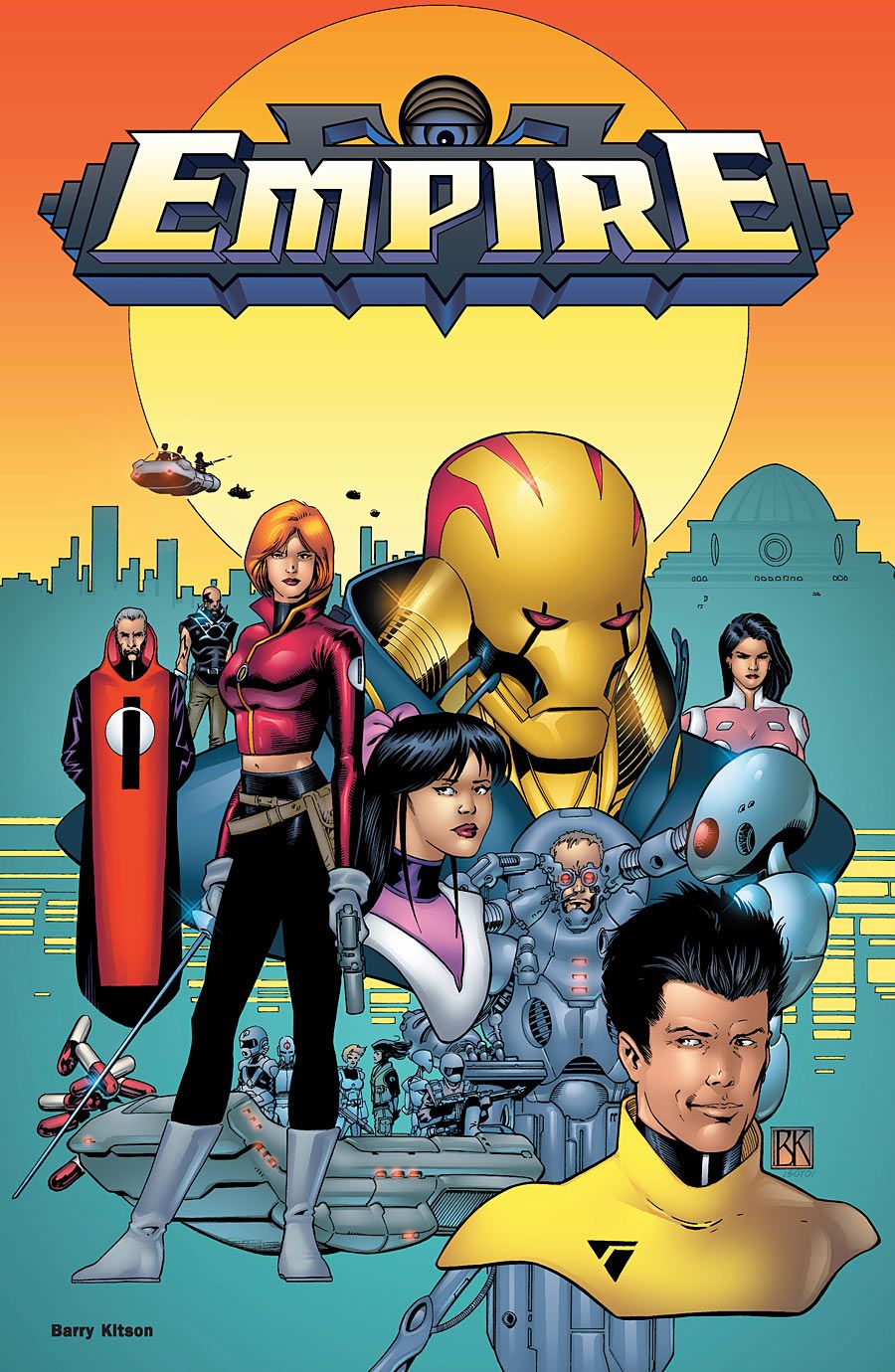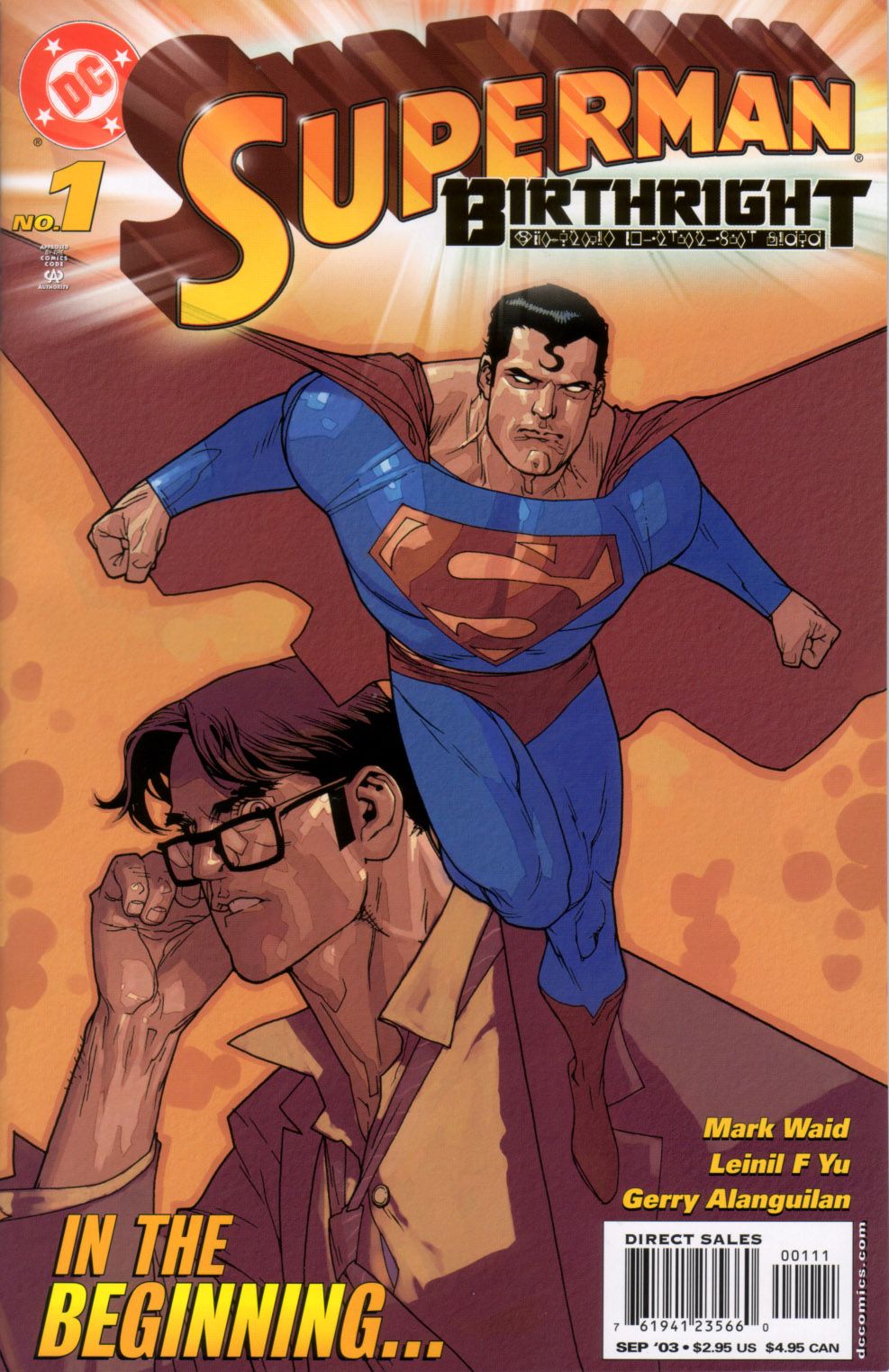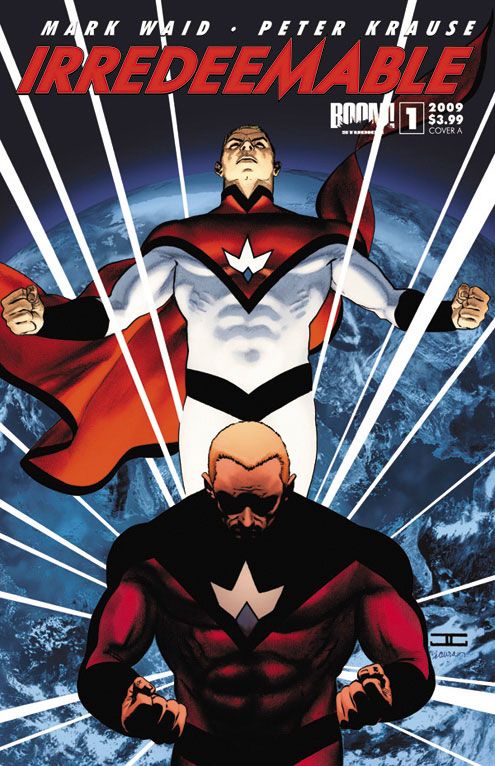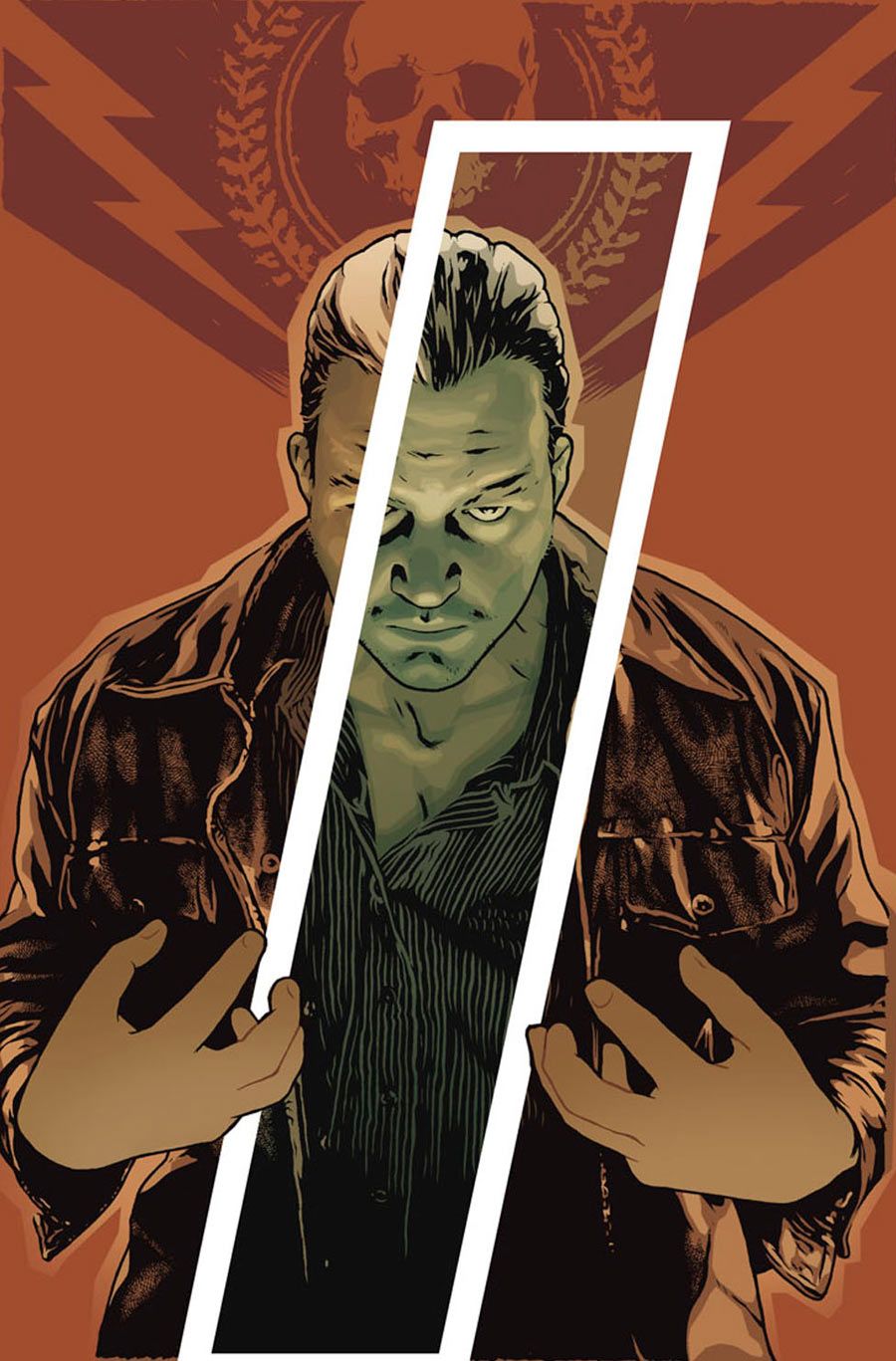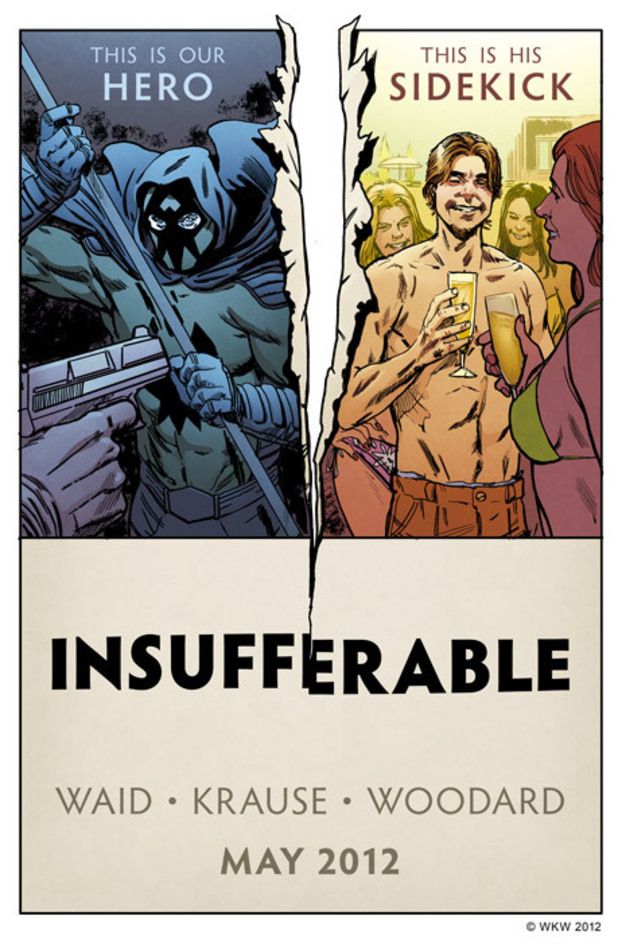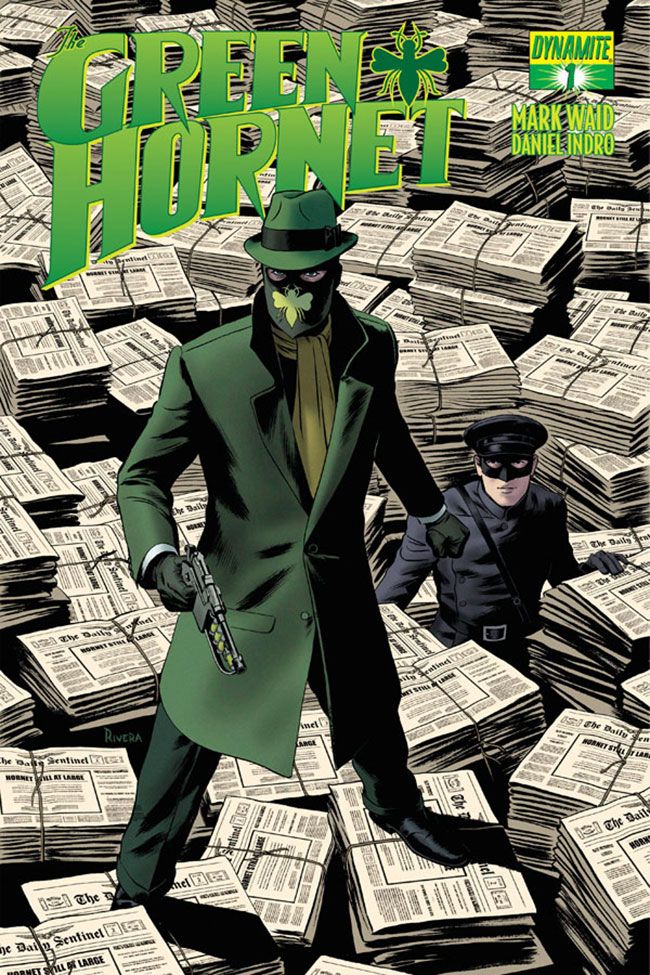Welcome to the CBR SUNDAY CONVERSATION, a weekly feature where we speak in-depth -- and at-length -- with some of the most interesting members of the comic book community. These discussions run the gamut in terms of topics, from current projects to classic stories, talking trends, tastes and wherever else the conversations lead.
In the Fall of 2013, Mark Waid and partner Christy Blanch joined friend Jason Pierce in running Alter Ego Comics, a comic shop in Muncie, Indiana. Even with years of scripting landmark runs for both Marvel and DC Comics, and helping his own digital initiative with Thrillbent, the writer continues to serve as the medium's staunch and wide-eyed advocate. For the young boy who kept meticulous records of first appearances in a metal file box, the industry continues to feed an innate curiosity and hunger for both wonder and creative innovation.
RELATED: Digital Comics Advocate Mark Waid Discusses Becoming a Comic Book Retailer
CBR News spoke to Waid about his continuing education in the world of comics, as writer, retailer and chronicler.
CBR News: How's it going with the shop?
Mark Waid: You know, it's actually going pretty well. The store is holding its own. We're getting more and more customers every week because we do a lot of local promotion. It's a university town. That helps. Even during the summer, we don't see any sort of downslide in the customer base, which is great.
Biggest surprises going into that?
[Laughs] The sheer number of people who just will not pick up their subscription pull-copies, no matter what you do.
Yeah?
Yeah, not in a back-breaking number, but it's just that idea of -- a lot of fans don't understand. We offer a pull-list service, and all that we ask in return is that you come in every month or two and pick up what's there, and not vanish in the middle of the night, or call us up in the middle on the night and tell us you moved to Illinois and forgot to tell us. Those are then books we're stuck with and paid for and we've got to figure out what to do with. If it's a two-month-old issue of "Aquaman" I'm not quite sure what we're supposed to do with that.
I imagine it gives you a new appreciation for other retailers, but does it change your approach to things as a creator, at all?
It does. It's a process. What it's doing is -- and I knew all this stuff intellectually, but there's a big difference between knowing it intellectually and really facing it -- it's forcing me to work harder as a writer and creator. The sheer flood of material that comes in every week, or when you pick up that Diamond catalog, which is larger than most small town phonebooks, it really puts your work in perspective. The signal to noise ratio is just so huge in the direct market that I certainly understand why only the biggest, biggest stores in the world can actually offer a copy of pretty much everything on Wednesday, with deep shelves and plenty of copies to spare. That kind of behavior would put a lot of smaller stores out of business.
RELATED: Waid Plans a Second "Empire" at Thrillbent
Does it also put you in closer touch with what people are actually reading, even more so than black-and-white online sale figures?
It does. It's one of my first questions at the end of every Wednesday. What did we move a lot of? What surprised us? What didn't surprise us? What have people been asking for that we haven't been getting in? These are all things that -- again, I don't want to over characterize. Jason Pierce and Christy Branch, who are the partners, they do so much of the heavy lifting. I contribute my expertise and my experience -- but these are the kinds of questions that we ask. We're all partners going in and this is everybody's money. Let's figure out how to spend it in a way that makes sense to build the community.
Shifting from commerce to the artistic side, when was the last time you had a revelatory experience with a piece of art?
This is the god's honest truth. Javier Rodriguez, our colorist on "Daredevil." He also does a lot of pencilling and artwork on his own. He's just so good. He did a two-page spread for "Daredevil" that came in two weeks ago that put anything I've seen in comics to shame. It's a two-page sequence, this two-page spread of Daredevil in an office building listening to all of the conversations that are happening at once. He just gave it so much detail, added so much to it, that your eye can linger on those pages for half an hour and continually find new details. It's really hard to describe -- after all, it is a visual medium, not the best thing to be described in words -- but that's bravura storytelling. That was something.
I'll be looking forward to it! You've had the great fortune to work with some of the best visual storytellers in comics over the years, so is it surprising that you still have the capacity to be surprised?
Well, part of it is because, for some reason, leaving myself out of the equation, "Daredevil" seems to bring out the best creators and some truly imaginative stuff. I know that sounds like flackery on my part. It's not meant to be. If you look back on the history of Daredevil as a character for 50 years, an amazing number of really great artists have been working on that book, statistically speaking. That's part of it. The other part is that I'm hungry to see that stuff. I'm hungry to see stuff that uses the medium in a new way. Warren Ellis just did something in "Moon Knight" last month with this sequence up front. Eight conversations at the same time. As each conversation ended -- spoiler alert -- the corresponding panel on the next page would just go blank, until you ferreted out all the people talking down to one. Again, that's -- I've never seen that before. Having read 800 million comic books, the only thing that keeps me going is seeing something I haven't seen before.
Do you get jealous of particular ideas? Is there any level of competition running parallel to the simple joys of discovery you experience as a reader?
Oh, I can certainly get jealous in a sort of momentary flash. I don't get resentful and bitter. That Warren Ellis thing is a good example. My initial reaction is that I wish I'd thought of that. But that just means that I have to up my game, which is great. This is our job, man. This is our job every month, to give you something that you've never seen before. 90% of the time, we fail. Because we're on a monthly schedule. We're a periodical business. There's only so many hours in a day to gestate over your precious baby of an idea before you have to throw it out into the public. But those times that we do, those times when you get that sequence or that artist's point of view, that lettering trick, that ballooning bit of storytelling only achieved by the way the letterer works, that's the sweetest moment in comics. That's also the thing that keeps you from being jaded as a creator, because you have to be hungry for that. Otherwise you're just doing a crossword puzzle every month. "Here's the grid. Twenty pages. Let's go." What a dull way to approach your job.
Do you think that monthly schedule ultimately helps or hinders storytelling in the long term?
That's a good question. It certainly differs for different people. I know myself well enough to know that if you give me six months on a deadline, I will take six months. What that means is that I will work very hard those last two weeks of that six months.
[Laughs]
That is my nature. It's a weird balancing act, an odd tightrope to have to walk. There's something to the idea that it's gotta be out there on a regular basis that forces you to work with great intensity and then surrender and just move on to the next thing. I think that's an important part of it. The real paradigm shift in the course of my career and the breadth of my career has been the fact that when I started -- when many of us started in the late '80s, early '90s -- we were still much of the opinion that nothing we ever did would ever stay in print. We were still in a purely periodical business. There were no real trade paperbacks collections of a regular basis to speak of. There were special things here and there, but publishers didn't routinely collect this stuff in print. Digital was only a glimmer in the eye of the future. This idea that everything you write now will probably remain in print for a long, long time? That's weirdly intimidating. I have a lot more sympathy for writers and artists who choose to take their time on stuff rather than grind it out on a monthly basis. In a perfect world, you're doing both. In a perfect world, you're serving both masters. I understand that a year from now, no one is going to remember if this one Bryan Hitch comic came out six months late. They'll certainly remember whether it was any good. Because it's still going to be available.
It's interesting to think of that time when serialized stories were so ephemeral, you know? It's the way they used to talk about practical effects in a science fiction film. It was designed to be seen once and then likely never again, so if a seam or wire shows upon close inspection, that's of little concern. Viewers will be so absorbed in the experience that they probably won't notice. You only show the magic trick once, or the illusion's under too much scrutiny. We have a different relationship with stories now. We revisit. We watch commentaries.
Yeah. Think about it. There's probably -- how old are you again?
I'm 29.
CBR TV: Waid on "Daredevil," "Hulk" & Return of "Empire"
Right, so there's probably more media available for you to watch right this second at your fingertips, than there was in an entire year 29 years ago when you were born.
Certainly.
I am constantly both delighted and hyperventilating with anxiety at the fact that there is more media to be consumed right now in my house -- DVDs I haven't watched, Netflix queues, things on the DVR, old recordings of radio shows, diving through Marvel Unlimited -- than I'll be able to consume through the rest of my life. If there was never another piece of literature or comics or note of music recorded, I would still never catch up. That's terrifying. At the same time, as creators, we have to work hard to distance ourselves and make our work special. Man, this is the most depressing interview I've ever given.
I get that a lot. But if things were to stop for a year, and you could sit there in your bunker for a year and catch up on some of those things, what would you prioritize?
Oh, sweet. By the way, that is absolutely my dream. My dream. To have the "Twilight Zone" stop watch and just stop time for a year, so I could watch "Breaking Bad" from start to finish? There would be no greater gift in the world. That's why I've always liked the Flash. Flying was never my thing, or super strength. It was always, as a kid, this idea of super speed, because then you really can do all your homework in one night and then have time to relax and read several books before that cup of coffee is even finished cooling on the counter. I'm behind on "Breaking Bad." I'm behind on "House of Cards." It's funny you should mention this. I was thinking about it last night. There's like 1300 old-time Superman radio episodes that I may never get to in my lifetime, but that's like 600 hours of stuff. When? When will I get there? I'm too busy writing stuff. And we're not even gonna get into, "Hey, I should read Shakespeare from start to finish." I really ought to do these things.
I see you dropping a lot of knowledge in all those superhero documentaries. You seem to be good at retaining a lot of the information that you have read. Do you perceive yourself as having a good memory?
Eh. I have a good memory for anything I discovered before I discovered girls. Yes. It is weirdly paradoxical. A couple of months ago I got it into my head, "Hey, the Joker's giant playing card that hangs in the Batcave -- I wonder where the first time we ever saw that was." So, I went and looked it up. It's "Batman" #32 by the way, and the reason I remember that is the same reason I remember all my comics stuff. It'll be in my head until the day I die. Conversely, if you put a gun to my head and ask me what I had for lunch yesterday, it would be all over. It's this weirdly segregated brain where I can still reel off the titles of every "Justice League" story from the 1960s, and yet, more and more, I still find myself standing in the living room going, "Wait. Why did I come in here again?"
Priorities.
[Laughs] You know, when I was a kid, I had a ritual. I read every comic that I bought, twice. Not once, but twice. Since then I've read them thousands of times, but I mean I would read them carefully, twice. I'd read that week's books and then I'd go back. I'd look at them and take notes. I would take out a 3x5 index card and for every comic book I owned, I would write down the issue number and story title, the date of purchase, all the creative credits, and I would keep it in a giant, metal file box. This was an obsession of mine until I was 16, 17, 18 years old. That stuff seams to be vacuum-sealed in my memory until the day I die.
Was there--
I do not recommend this course of action, by the way. Go outside and ride your bike. That's my recommendation.
Was that leading towards any kind of goal? Did you want to write a book about all of that material or--?
Not really.
RELATED: Waid Gives San Francisco a Guardian "Daredevil"
It was just ritual.
A ritual and a documentation in a way. A way of sort of -- I don't know. A way of accumulating knowledge about these books. I just liked knowing this stuff. When I was nine, DC published this 100-page book called "The World's Greatest Superheroes." 50 cents. 100-pages of reprints. In it, it listed every single DC hero who'd appeared up to that point and their very first appearance. That's all it was. A bargain basement list of names and first appearances. I wrote every single one of those on a separate file card. I did my research and looked up their origins, write my own synopsis of them. I wrote my own Who's Who when I was nine years-old. I did this all through junior high school. I did this with Marvel characters. I did this with any superhero or comic book character I could find. I would just research and write and gather. When I was in college and after college, I worked for an accountant who, in the evenings, would let me work on the computers and dBase -- to date myself -- to create a master list of every reprinted story I could find, so that I'd always know where these stories came from and if I was stuck at a convention and I had to choose between two old issues of "Jimmy Olsen" I could check the list. "Oh, I've read these stories, but I don't have this issue."
Is this stuff still around? These records?
Oh, yeah. It hasn't been updated for a million years, but there's still file boxes and binders in my office. The internet's made it very superfluous. I can search for that stuff on comic.org much faster than I can open up a file box at this point.
It's still interesting as a personal record.
[Laughs] Yes. These are the kinds of things they'll find in my office when I have that heart attack that is only one staircase away.
Stay tuned to CBR News for more on Mark Waid and follow him on Twitter at @MarkWaid.

